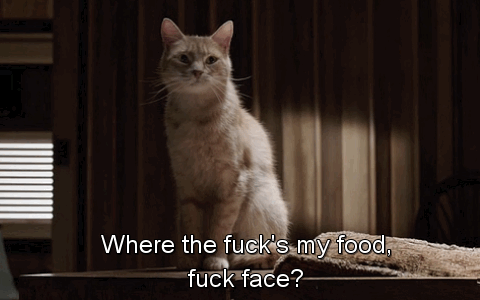Dana! You watched American Ultra! I’m touched you gave it a try. It’s okay if you didn’t love it as much as I did—let’s be stoned-out-of-our-gourds Tracy and Hepburn together one day.
Speaking of polarizing movies, last night I hosted a Q&A with Charlie Kaufman after a showing of Anomalisa, one of my favorite films of the year. Kaufman, co-director Duke Johnson, producer Rosa Tran, and I were standing outside the theater waiting for the credits to wrap—because of the 5,770 generous Kickstarter backers, the credits take about, oh, 11 years—chit-chatting about karaoke when a young man burst out of the auditorium. He spotted Kaufman and strode over with his arm out.
“I just came out of your movie,” he said, grabbing Kaufman’s hand.
“Did you like it?” asked Kaufman. A long pause. The man looked to the ceiling for help like it could whisper what to say. More silence. Kaufman deflected the awkwardness: “I mean, you did just shake my hand.”
I’ve seen Anomalisa three times. Each times the lights came up, there were dazed faces just like that—the stunned looks of folks who caught painful glimpses of their failed relationships reenacted by marionettes while witnessing a puppet sex scene realer than anything on the scrambled channels.
I can empathize. When I first caught Anomalisa in Toronto, I fled to the exit before anyone could scramble my mood, walked in silence to a poutinerie, and ordered my fries in a trance. But ever since I worked out what I think Kaufman was trying to say—or at least what the movie said to me, as Kaufman insists on people defining it for themselves—I can’t shut up about his muted stop-motion miracle. If Kaufman is a cult leader, I’m his Tom Cruise.
Big Hollywood flicks could learn a lesson from Anomalisa, or for that matter 45 Years, The Diary of a Teenage Girl, Inside Out, or the achingly lovely (and I’d argue, optimistic) Room. These are movies where the stakes are as small as one human’s soul—and yet each had me on the edge of my seat.
By contrast, this year the major studios couldn’t stop making bombastic threats. The Avengers have to stop the villain, or Earth will be destroyed! The Kingsmen must stop the villain, or Earth will be destroyed! Rey and Finn have to stop the villain or whatchamacallit will be destroyed! Even the otherwise chipper Tomorrowland—an ode to eggheads that I enjoyed quite a bit—couldn’t resist putting our globe under the gun. Every punch-up screenwriter in Hollywood is poaching from that infamous dog-in-peril cover of National Lampoon: “If you don’t buy a ticket to this movie, we’ll kill this planet.”
These mass appeal movies could never pull that apocalyptic trigger. No focus group would ever give a thumbs-up to murder 7 billion humans. (A couple thousand—no problem.) So movie after movie ends with an empty bluff, and where’s the drama in that? See too many of these blusterers in a row, and it’s like—God, just incinerate the planet already, or shut up about it. No wonder my favorite blockbuster climax of the year, in Ant-Man, featured Paul Rudd and Corey Stoll fighting for supremacy of a 6-year-old girl’s toy train.
I think the studios are weed-wacking a path to the industry’s next temple of how-to-do-business. For now, we’re still stuck in the brush as they find a few clues of what’s to come: low-cost hits like STX’s The Gift, The Visit, Unfriended, The Gallows—that, respectively, made back their production budgets eight times over, 13 times over, 32 times over, and a staggering 227 times over. These films were all produced by skyrocketing producer Jason Blum, whose success had just gotten my attention during last year’s Movie Club.
In the year since, I set out to understand what made his cheapie formula work and how he convinces his directors to pinch pennies. M. Night Shyamalan, for example, downsized from a $130 million budget for After Earth to just $5 million for The Visit—and the latter raked in more at the box office. Blum offers his filmmakers two things: one, a cut of the profits. Two, total creative control. And I mean total. David, you ragged on Rob Cohen’s The Boy Next Door, another Blumhouse moneymaker, for its boneheaded Iliad “first edition.” I asked Blum about the error and he mock-groaned. “We gave him that note!” Blum laughed. “And we got shot down and let the director do what he wanted.”
The Boy Next Door’s impossible copy of The Iliad is a dumb, dumb, dumb mistake. Yet I can’t help finding it optimistic—not in the George W. Bush ideal of “Is our directors learning?” but for this glint of sunshine about the film future to come, one where budgets are sensible, stakes are stabilized, and directors are free to be auteurs even at the risk of embarrassment.
And with that, it’s time for me to wrap up this delightful week of Movie Club the way I began: with an angry cat gif. Meet Mr. Whiskers from The Voices, a heartbreaking tragicomedy by Persepolis’ Marjane Satrapi about a heavily medicated man who talks to his animals.

I afforded The Voices only half a sentence in my previous entry, but maybe it’s best just to leave this here sans context and hope it entices people out there to track it down. Or, at the very least, be nicer to your pets. As Mr. Whiskers might say, “We are not things!” Time for me and Mr. Whiskers to jump in Furiosa’s big rig and speed off into the sunset. It’s been such a pleasure chatting with ze this year—and here’s hoping there’s tons to talk about in 2016!
Read the previous entry | Read the next entry
To get each new entry in this year’s Slate Movie Club in your inbox, enter your email address below:
